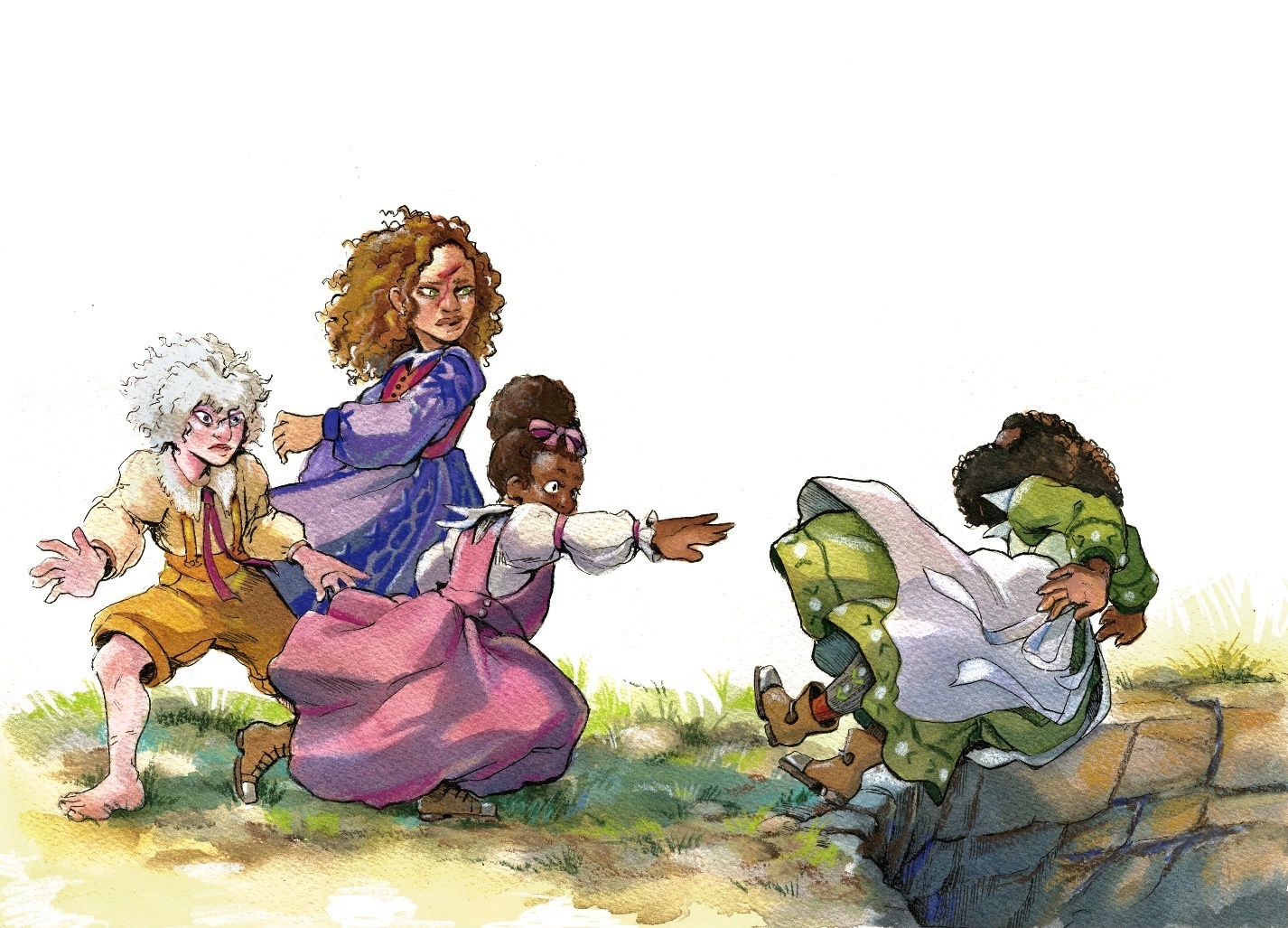Chapter 2:
An Almost Offering
A handful of years passed, and the farmers each autumn went up to Magden to the officials of the city, to petition the councilors and the judges, the count who resided there, his son and daughter. No one listened.
Promises were made to send inspectors, or a professor of agriculture, or even one of the King’s courtiers, but no one ever felt inspired to make the long voyage by train and cart to their corner of farmland.
“Soon, soon,” they said. “You can’t rush these things, there is paperwork that needs to be filed.”
While this was in the corner of her mind, Moth – now 13 – had a much smaller world she thought about, and most of it was occupied by Ama and Grandpa Clem.
When she was done with housework, Ama would run the mile between the house and play with Moth while Clem slept. He slept more, now.
The first month of spring saw the end of the snow, except where it clung in the shadows of hills and fences, and Moth walked the warm stone path barefoot to the cistern while Ama clodded after her with her bow.
“Ma is teaching me, she says I’m very good,” said Ama. Her curls had been firmly braided in place by Priscilla’s vicious hand, but some tufts of it had escaped their prison at the top. “She said its tradition for her, I guess her mom did it too, but
